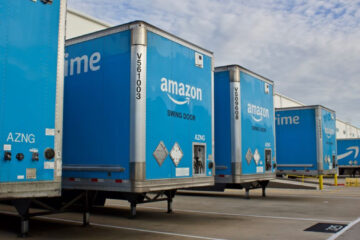If you’re a beer drinker, you probably have a favorite type of brew and maybe even a favorite brewer.
If wheat is your go-to, maybe it’s Blue Moon. If it’s a lager, then it could be Modelo Especial. If you love IPAs and more craft-style beers, Stone and Lagunitas are probably on your list.
💵💰Don’t miss the move: Subscribe to TheStreet’s free daily newsletter💰💵
Craft beer, however, is facing a sobering reality. After years of booming growth, adult-beverage consumers are moving away from alcohol in general and beer in particular, leading to brewery closures from coast to coast.
Breweries, like plenty of other businesses in the food and beverage space, are dealing with post-pandemic challenges. Taproom traffic is down, distribution is tough, and the average consumer is spending less and drinking less. Many mid-sized breweries are running below capacity — meaning they have idle brewing equipment and labor.
Now some breweries are finding an unusual lifeline: private-label partnerships.
Retailers like Costco, Walmart, and Trader Joe’s are quietly reshaping the beer aisle by launching private-label craft brews, often made by respected breweries but sold under generic packaging.
The strategy has big implications for shoppers, who are hunting for value, and for breweries, which want to keep their tanks full in a slower market.
Retailers are jumping into the beer business for the same reasons they’ve embraced private-label snacks, sauces, and supplements: higher margins, brand loyalty, and pricing control, according to a recent report in Food Dive.
Costco’s collaboration with Deshutes is winning fans and awards.
Image source: Shutterstock
The Costco beer collaboration that may have started a trend
Earlier this year, Costco surprised beer lovers by teaming up with Deschutes Brewery — one of the most award-winning craft brewers in the country — on a private-label lager. Sold under Costco’s Kirkland Signature brand, the “Helles Style Lager” came in a simple red or white box marked only with “Lager.”
But savvy shoppers spotted the small Deschutes logo on the box and quickly spread the news online.
It turns out, the beer isn’t just good — it is award-winning, having taken home a gold medal at the Great American Beer Festival in 2023. And at just $13.99 for a 12-pack, it’s craft-beer quality at a Costco-sized value.
Related: Walmart quietly launches new same-day delivery option
That Costco-Deshutes collab is part of a much bigger trend, and Costco isn’t the only one getting in on the action.
Trader Joe’s, for example, stocks JosephsBrau made by Gordon Biersch, Boatswain made by Rhinelander Brewing Company, and Mission St. made by Steinhaus Brewing Company.
More retail:
Aldi releases viral Trader Joe’s item that is always out of stock Home Depot, Lowe’s rivals strategic growth plan Trader Joe’s making huge mistake not copying Walmart, Target
Walmart is preparing to launch a new private-label line called Brewmasters Selections, modeled after popular beers like Michelob Ultra, Modelo Especial, and Miller Lite. The beers will be brewed by City Brewing and distributed exclusively through Walmart stores.
Instead of launching another IPA into a crowded market, brewers are partnering with big retailers to produce exclusive house-brand beers. These deals provide guaranteed production volume and steady income, without the marketing costs of launching a new brand.
Private label, also called store-label, sales overall grew by 4% last year to reach a total of $271 billion, according to the Private Label Manufacturers Association (PMLA). Store-brand beverages led the way with a 4% year-over-year increase.
Private-label beer is on the rise for a surprising reason
For consumers, this trend offers something rare: quality beer at affordable prices. While many private-label beers come in no-frills packaging, the liquid inside can be just as good — or better — than higher-priced name brands.
It also offers variety. Retailers are testing multiple styles, from crisp lagers to hazy IPAs, and often rotate seasonal releases. That makes the beer aisle feel fresh, even without the flashy branding of traditional craft brews.
Related: Nostalgic breakfast treats move to the ice cream aisle
But there’s a tradeoff. Most private-label beers don’t advertise who made them. Unless you’re scanning for clues or happen to notice a familiar brewer’s logo, you may never know that your store-brand pilsner was brewed by a respected craft operation.
Still, most shoppers are more focused on price and taste than provenance. More than half of the Gen Z shoppers who participated said they “always/frequently” choose a place to shop due to its store brands, 67% are “extremely/very” aware of store brands; 64% buy store brands “always/frequently;” and 56% are “extremely likely/likely” to experiment with store brands to find “best value,” according to the PMLA.
As inflation pressures consumer spending and more craft breweries struggle to survive, expect private-label beer to become a staple in more stores and fridges.
Related: McDonald’s menu adds hot new collab to spice things up


